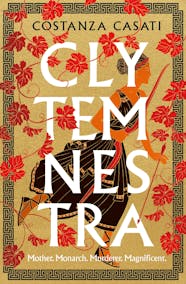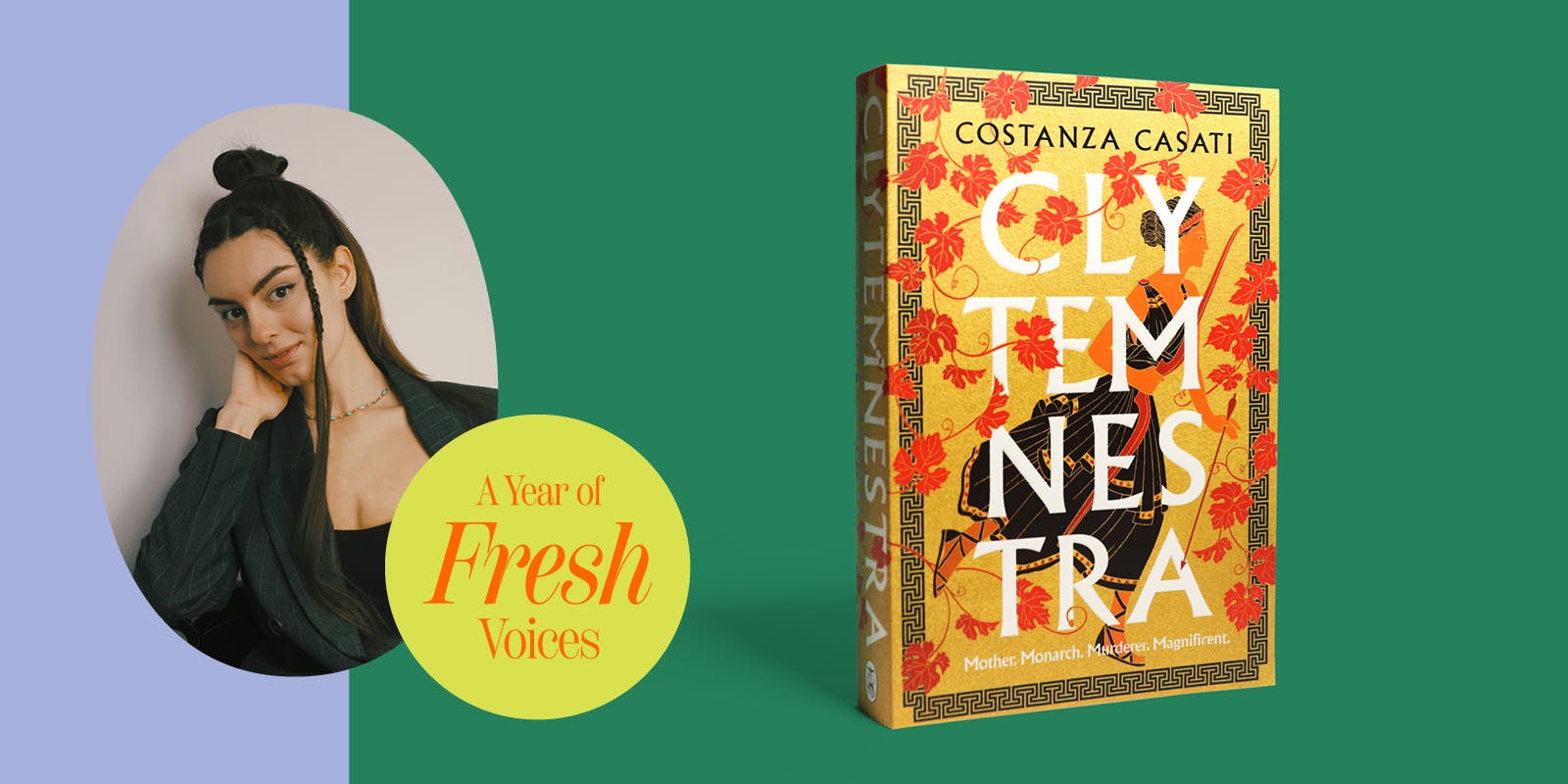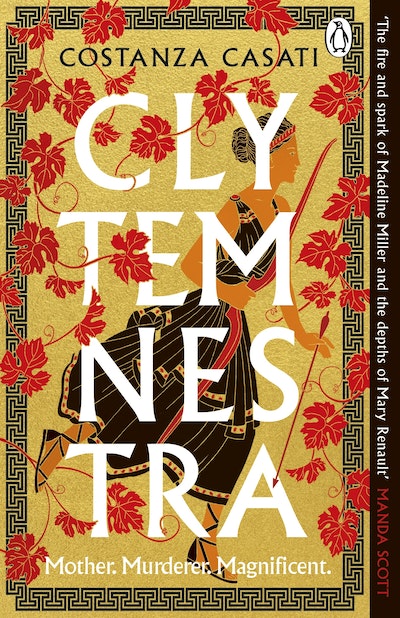Find out what books inspired this debut novelist, how she came up with the idea for ‘Clytemnestra’ and the number one thing she wishes she could go back and tell her younger self.
We caught up with debut author Costanza Casati to learn more about her debut novel Clytemnestra.

Clytemnestra by Costanza Casati
'When vengeance calls and the gods stop watching,what do we do to those who harm the people we love?'
Wife. Mother. Fighter. Conspirator. Queen. CLYTEMNESTRA.
This is the story of a daughter betrayed by her father. Who watches her sister be destroyed by violence and rape. Whose child is sacrificed to ensure her family's power. Who fights as fiercely as any warrior. Who falls in love with her husband's enemy. Who is hungry for otherworldly retribution against both men and gods...
What was your writing process like for Clytemnestra? Did you have a writing routine or any regular rituals?
I try to write every day if I can. That isn’t always easy because, to write something good, I need to have a certain level of concentration. So if I don’t feel focused enough on the story, I do a lot of research instead. Research includes many different things, from reading books whose writing and characters I find inspiring, to studying fragments of Ancient Greek poetry, to looking at the cinematography of films I love. Most of Clytemnestra was written during lockdown, so I didn’t have loads of distractions. I wrote the book fairly quickly (seven months, more or less) because I had been living with those characters in my head for a long time already.
How did you first come up with the idea for the book?
I started studying Classics when I was fourteen, while I was attending an Italian liceo classico. That is when I became familiar with the fascinating heroines from Greek mythology. Clytemnestra especially drew me to her because, in the ancient texts, she is truly unforgettable: fierce and ambitious, protective of the ones she loves, feared and respected for the power she holds, and she doesn’t let the men around her belittle her. Here are two quotes (among many others) that inspired me to write about this character:
Agamemnon on Clytemnestra in The Odyssey: 'There’s nothing more deadly, bestial than a woman set on works like these – what a monstrous thing she plotted, slaughtered her own lawful husband.'
Clytemnestra after killing Agamemnon in The Oresteia: 'I brooded on this trial, this ancient blood feud, year by year. At last, my hour came. Here I stand and here I struck and here my work is done.
How long have you been working on this book?
I started writing Clytemnestra while doing a Masters in Creative Writing at Warwick University. When I had to submit a story for the historical fiction module, I wrote a piece about Clytemnestra and the murder of her husband, submitting what would become the first few chapters of the novel.
Two years later, after working as a freelance scriptwriter, I went back to the story and wrote the whole novel during the first lockdown. Bronze Age Greece became my world in those months of isolation. I would wake up thinking about Clytemnestra and go to bed with my characters talking in my head. It was a difficult time, but full of happiness and creativity.
What was your big break into publishing? What was the publishing process like (finding an agent, submitting manuscripts, etc.)?
Before submitting Clytemnestra to agents, I completed the Curtis Brown Creative course on pitching a novel. I learnt everything I could about editing, synopsis and pitch letters.
I realised that despite all the creative writing workshops I attended, I knew nothing about pitching a novel. I studied the wish list of every literary agent out there and carefully selected a limited number to submit to. Within a few days, I got a first manuscript request, and that was quickly followed by three more.
After the third request, I plucked up the courage to submit to my dream agent. She had been at the top of my list the entire time, yet I couldn’t bring myself to email her.
After I let her know that I had received other manuscript calls, she replied quickly (in half an hour!) and asked if she could read the manuscript too. Three days later, she emailed asking for a Zoom meeting and then offered representation. That, to me, felt like my big break into publishing.
A very quick and intense round of editing followed before Clytemnestra landed on the editors’ desks. After three days – when I kept refreshing my email in a rather obsessive way – I got a call from my agent. She told me that Penguin Michael Joseph wanted to pre-empt my book. I still think of that day as one of the best of my life.
What most excites you about your book being published in 2023?
Meeting readers!
Do you have a favourite book or author?
My absolute favourite novelists are Elena Ferrante, for her brilliant way of depicting female friendship, Margaret Atwood, for her intimate, lyrical prose, Madeline Miller, for bringing the ancient world to life in her novels, Chimamanda Ngozi Adichie, for how she combines the personal and the political, and Gillian Flynn for her flawed, brutal and reckless heroines.
Some of my favourite books are The Secret History, The Song of Achilles, Alias Grace, The Book of Longings, and Half of a Yellow Sun.
What inspired you to become a writer?
The authors I read and loved as a child inspired me to become a writer, from Christopher Paolini and Cornelia Funke to JK Rowling.
What did you want to be when you grew up and why?
As far back as I can remember, I always wanted to be a writer. I often think about something Donna Tartt once said in an interview that resonated with me: ‘Writing, for me, is almost another way of reading, except one level deeper. Almost as soon as I began to read – and I read very early – I began to write.’
If you could go back in time and give your past self one piece of advice, what would it be and why?
Something that I’m still learning: not everyone can like you – and this applies really well to writing. Not everyone is going to love what you write, so try to just be honest and real. It’ll allow you to be less scared, more excited and, as a consequence, to be a better writer.
What is the best writing lesson/tip you ever received?
It’s a quote from Stephen King: ‘Fiction is the truth inside the lie.’ If you can find the truth and the beating emotional heart in everything you write, the book will shine.













